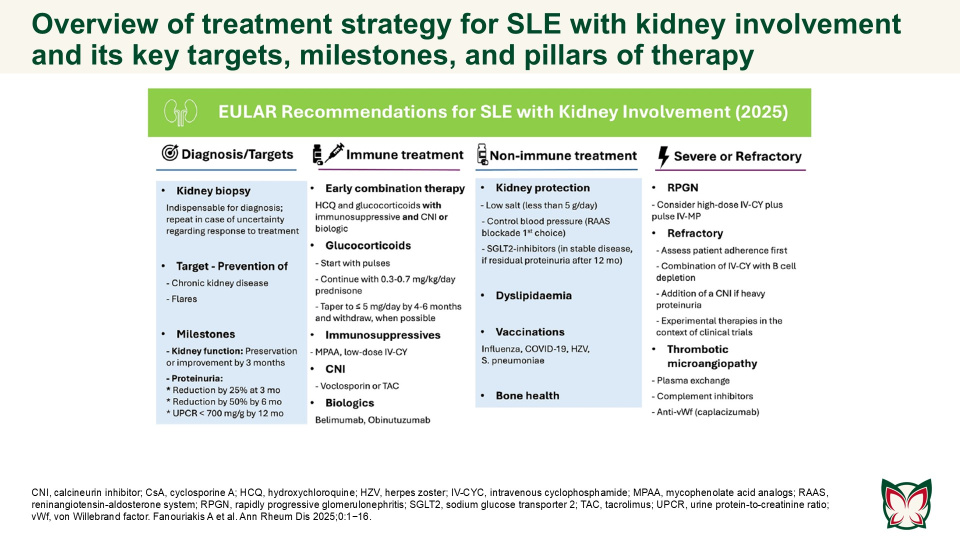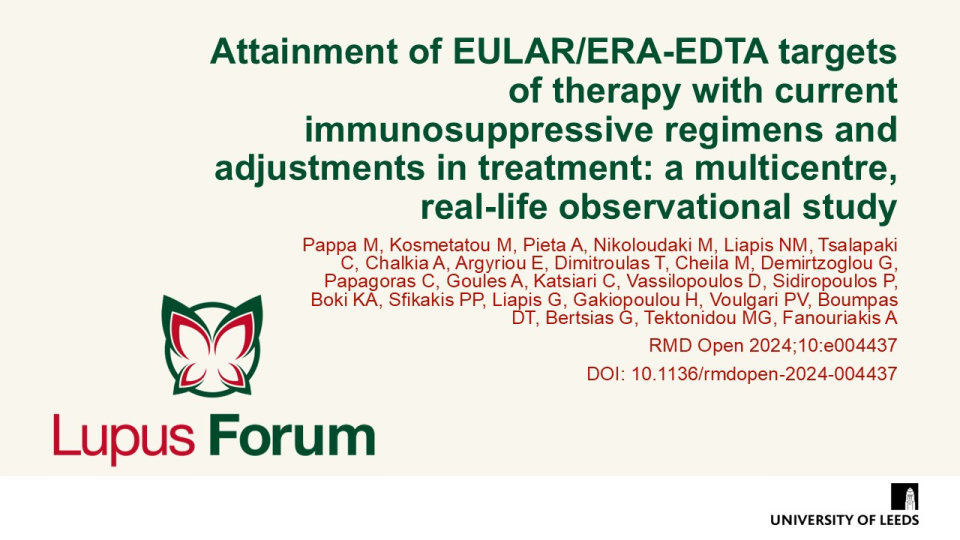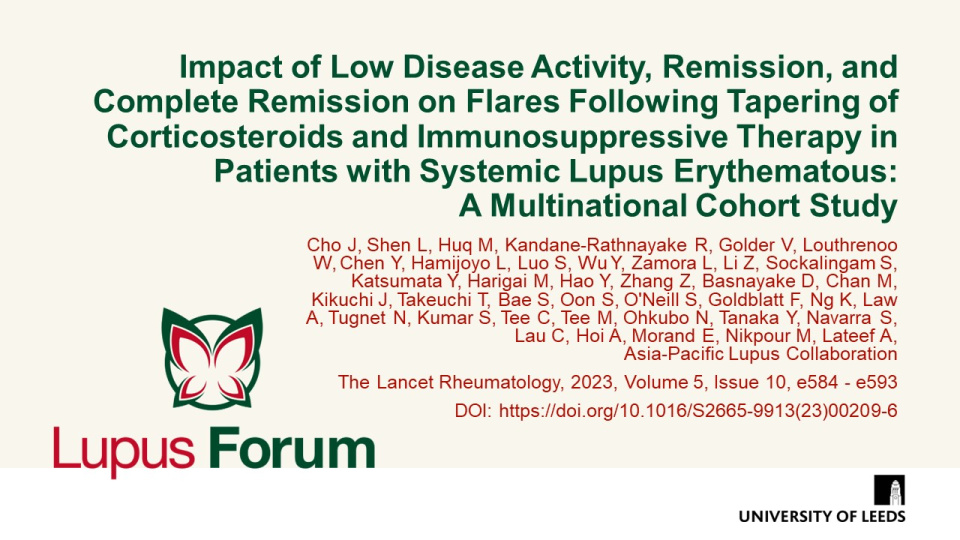Publications
Find coverage of the latest original articles on Lupus, focusing on those with data on therapeutic interventions and those that have clinical impact.
EULAR recommendations for the management of systemic lupus erythematosus with kidney involvement: 2025 update
Ann Rheum Dis 2025;0:1−16 Doi: 10.1016/j.ard.2025.09.007
The updated EULAR recommendations provide evidence- and expert-based consensus on the management of SLE with kidney involvement, adjusted for severity, and taking into consideration long-term efficacy, safety, cost, and local availability of drugs. Fanouriakis A et al. updated the 2019 EULAR/ ERA-EDTA recommendations for the management of SLE with kidney involvement, taking into consideration emerging evidence and recent developments in the field.
Keywords:
Comparison of a voclosporin-based triple immunosuppressive therapy to high-dose glucocorticoid-based immunosuppressive therapy: A propensity analysis of the AURA-LV and AURORA 1 studies and ALMS
Lupus Science & Medicine 2024;11:e001319 DOI: 10.1136/lupus-2024-001319
Dall’Era et al. conducted a propensity analysis to compare voclosporin-based triple immunosuppressive therapy with high-dose GC-based regimens for active LN. Voclosporin showed fewer AEs, improved safety, and significantly reduced proteinuria over six months, suggesting a superior risk-benefit profile for patients with lupus nephritis.
Keywords:
Attainment of EULAR/ERA-EDTA targets of therapy with current immunosuppressive regimens and adjustments in treatment: a multicentre, real-life observational study
RMD Open 2024;10:e004437 DOI: 10.1136/rmdopen-2024-004437
Pappa et al. explored the achievement of EULAR/ERA-EDTA targets in lupus nephritis patients receiving standard immunosuppressive therapy. Two-thirds of the cohort achieved target responses by 12 months, but 20% required therapy modifications due to suboptimal outcomes.
Keywords:
Impact of Low Disease Activity, Remission, and Complete Remission on Flares Following Tapering of Corticosteroids and Immunosuppressive Therapy in Patients with Systemic Lupus Erythematous: A Multinational Cohort Study
The Lancet Rheumatology, 2023, Volume 5, Issue 10, e584 - e593 DOI: https://doi.org/10.1016/S2665-9913(23)00209-6
In this study, tapering of corticosteroids or immunosuppressive therapy in patients in LLDAS, remission, or complete remission was associated with excess flares versus continuing with therapy. Tapering in complete remission was associated with lower odds of flares compared with tapering in LLDAS or remission. In addition, patients with longer sustained duration of LLDAS or remission at the time of tapering had lower odds of flare and longer time to flare versus those with a shorter duration of LLDAS or remission.





